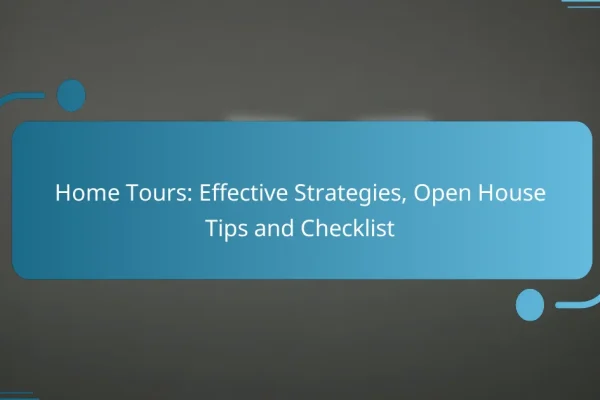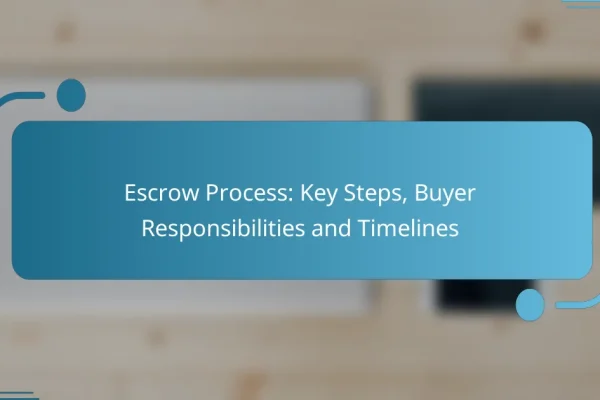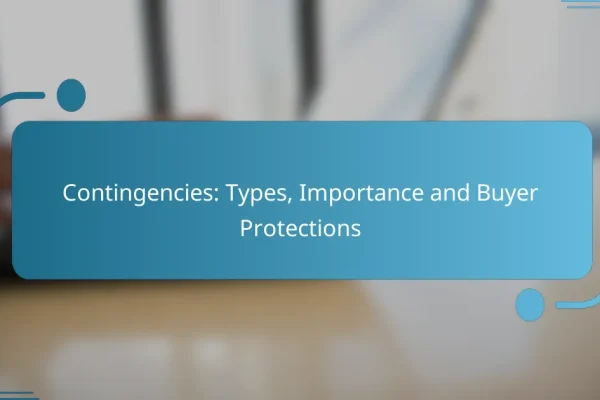How to simplify the home buying process in the USA?
Simplifying the home buying process in the USA involves understanding key steps and utilizing available resources effectively. By leveraging technology, expert guidance, and educational opportunities, you can navigate this complex journey more easily.
Utilize online mortgage calculators
Online mortgage calculators are valuable tools that help estimate monthly payments based on loan amount, interest rate, and loan term. By inputting different variables, you can quickly see how changes affect your budget, allowing for better financial planning.
Many calculators also provide insights into total interest paid over the life of the loan and can help you understand how much you can afford. Aim to use these calculators early in your home search to set realistic expectations.
Engage a local real estate agent
Working with a local real estate agent can significantly streamline the home buying process. Agents have in-depth knowledge of the local market, including pricing trends, neighborhood specifics, and available properties that meet your criteria.
Choose an agent who understands your needs and communicates effectively. They can guide you through negotiations, paperwork, and closing processes, ensuring you avoid common pitfalls and make informed decisions.
Attend first-time homebuyer workshops
First-time homebuyer workshops provide essential education on the buying process, financing options, and what to expect during homeownership. These workshops often cover topics like budgeting, mortgage types, and the importance of home inspections.
Look for workshops offered by local housing authorities or non-profit organizations, as they may also provide access to down payment assistance programs. Participating in these sessions can empower you with knowledge and confidence as you embark on your home buying journey.
What are the key steps in the home buying process?
The home buying process involves several key steps that guide buyers from initial financing to closing the deal. Understanding these steps can help streamline the experience and reduce potential pitfalls.
Pre-approval for a mortgage
Pre-approval for a mortgage is a crucial first step in the home buying process. It involves a lender assessing your financial situation to determine how much they are willing to lend you, which can range from low tens of thousands to several hundred thousand dollars depending on your income and credit score.
To get pre-approved, gather necessary documents like pay stubs, tax returns, and bank statements. This will help you understand your budget and strengthen your position when making offers on properties.
House hunting with a real estate agent
House hunting with a real estate agent can significantly simplify your search for a new home. Agents have access to listings that may not be publicly available and can provide insights into neighborhoods, market trends, and property values.
When working with an agent, clearly communicate your needs and preferences, such as the number of bedrooms, location, and budget. This will help them find homes that match your criteria effectively.
Making an offer on a property
Making an offer on a property involves submitting a formal proposal to the seller, typically through your real estate agent. Your offer should include the proposed purchase price, contingencies, and any special conditions.
Consider the current market conditions when making your offer. In a competitive market, you may need to offer above the asking price or waive certain contingencies to make your offer more appealing to the seller.
Conducting a home inspection
Conducting a home inspection is a critical step that allows you to assess the property’s condition before finalizing the purchase. A qualified inspector will evaluate the home for structural issues, plumbing, electrical systems, and other potential problems.
It is advisable to schedule the inspection soon after your offer is accepted. If significant issues are found, you may negotiate repairs or reconsider your offer. This step can save you from unexpected expenses after the purchase.
What financing options are available for home buyers?
Home buyers have several financing options to consider, each with unique features and requirements. The most common types include conventional loans, FHA loans, and VA loans for veterans, which cater to different financial situations and eligibility criteria.
Conventional loans
Conventional loans are not insured or guaranteed by the federal government, making them a popular choice for many buyers. They typically require a higher credit score, often above 620, and a down payment ranging from 3% to 20% of the home’s purchase price.
These loans can be fixed-rate or adjustable-rate, offering flexibility based on market conditions. Buyers should compare interest rates and terms from multiple lenders to secure the best deal.
FHA loans
FHA loans are backed by the Federal Housing Administration, making them accessible for buyers with lower credit scores, often starting at 580. They allow for down payments as low as 3.5%, which can be a significant advantage for first-time home buyers.
However, FHA loans come with mortgage insurance premiums, which can increase monthly payments. It’s essential to factor these costs into your budget when considering this option.
VA loans for veterans
VA loans are designed for eligible veterans, active-duty service members, and certain members of the National Guard and Reserves. These loans offer significant benefits, including no down payment and no private mortgage insurance, making home ownership more affordable.
To qualify, applicants must meet specific service requirements and obtain a Certificate of Eligibility. VA loans typically have competitive interest rates, making them an attractive option for those who qualify.
What are common mistakes to avoid when buying a home?
Common mistakes in the home buying process can lead to financial strain and regret. Awareness of these pitfalls can help buyers make informed decisions and secure a suitable property without unnecessary complications.
Skipping the home inspection
One of the most critical mistakes is skipping the home inspection. A thorough inspection can reveal hidden issues such as structural damage, plumbing problems, or pest infestations that could lead to costly repairs later.
Investing in a home inspection typically costs a few hundred dollars but can save thousands in unexpected expenses. Always hire a qualified inspector to ensure a comprehensive evaluation of the property.
Not considering additional costs
Many buyers focus solely on the purchase price and overlook additional costs associated with home ownership. These can include property taxes, homeowners insurance, maintenance, and utilities, which can significantly impact your budget.
As a rule of thumb, set aside 1-3% of your home’s value annually for maintenance and repairs. Understanding these costs upfront helps in making a more accurate financial plan and prevents future financial strain.
Rushing the decision-making process
Rushing to buy a home can lead to poor choices and buyer’s remorse. Take the time to research neighborhoods, compare properties, and evaluate your financial situation to ensure you make a well-informed decision.
Consider creating a checklist of your must-haves and deal-breakers to guide your search. Allow yourself sufficient time to weigh your options, as this can lead to a more satisfying purchase in the long run.
How to choose the right neighborhood for your new home?
Choosing the right neighborhood is crucial for your overall satisfaction with your new home. Consider factors such as local amenities, safety, and commute times to ensure the area meets your lifestyle needs.
Research local schools and amenities
Local schools and amenities significantly impact property values and your quality of life. Check the ratings of nearby schools, as well-regarded institutions can enhance neighborhood appeal and resale potential.
Additionally, assess the availability of amenities like parks, grocery stores, and recreational facilities. A neighborhood with a variety of services can make daily life more convenient and enjoyable.
Evaluate crime rates and safety
Safety is a top priority when selecting a neighborhood. Research crime rates through local police department websites or community forums to get a sense of the area’s safety.
Look for trends in crime data, such as whether incidents are increasing or decreasing. Consider visiting the neighborhood at different times of the day to gauge safety and community feel.
Consider commute times to work
Commute times can greatly affect your daily routine and overall happiness. Use online mapping tools to estimate travel times to your workplace during peak hours.
Consider the availability of public transportation options, as well as the condition of local roads. A longer commute may be acceptable if it means living in a more desirable area, but aim for a balance that suits your lifestyle.
What are the benefits of using a real estate agent?
Using a real estate agent can significantly streamline the home buying process, offering expertise and access to resources that individual buyers may lack. Agents provide valuable insights into the market, helping buyers navigate complex transactions and avoid common pitfalls.
Access to market listings
Real estate agents have access to comprehensive market listings, including properties that may not yet be publicly available. This insider knowledge allows buyers to discover a wider range of options, increasing the chances of finding the right home.
Additionally, agents can provide insights into market trends, pricing, and neighborhood dynamics, which can be crucial for making informed decisions. They often have connections with other professionals in the industry, such as appraisers and inspectors, further enhancing the buying experience.
Expert negotiation skills
Real estate agents possess expert negotiation skills that can be pivotal in securing the best deal for buyers. They understand the nuances of offers and counteroffers, which can lead to more favorable terms and conditions.
Having an experienced negotiator on your side can help avoid common mistakes, such as overpaying or agreeing to unfavorable contingencies. Agents can also provide strategic advice on when to be flexible and when to stand firm, ensuring that buyers achieve their goals in the transaction.












